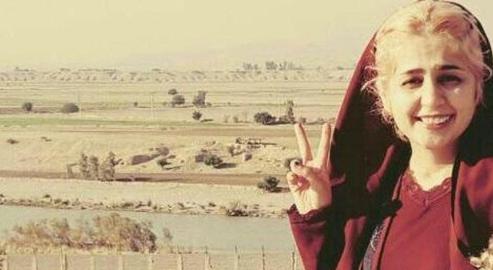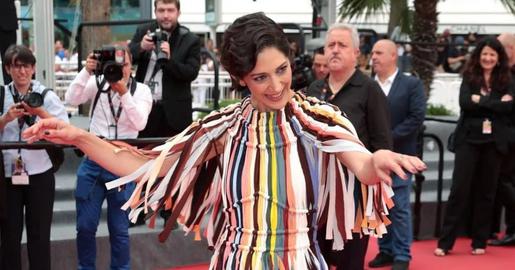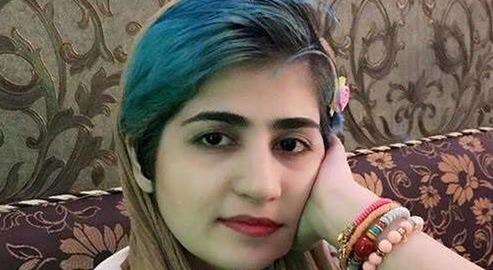Sepideh Gholian is a 25-year-old civil rights activist and journalist who was arrested during the labor protests of Haft Tappeh workers and sentenced to 18 years in prison. Her book, Tilapia Sucks the Blood of Hur al-Azim, tells the story of her detention at the Dezful Intelligence Detention Center and Sepidar Women's Prison in Ahvaz.
In these 19 stories, Gholian paints a meticulous picture of her horrific experience. On one hand, we directly encounter the face of oppression. On the other, we engage with the fates of others whose names, lives and imprisonment might otherwise be doomed to be forgotten and denied.
IranWire has previously published Gholian’s book in its original Persian and is now serialising the collection in English, while its author has been returned to Iran’s notorious Evin Prison. The stories are translated by Zahra H. Moravjev.
I still have no idea where I am. I am bleeding more than before; in my nightmares, I see that Esmail is dead. My scarf is loose, and part of my hair is showing. The guard kicks open the door and curses me, and after that I am careful to cover my hair, even when I sleep. I whisper his name, plaintively as a mother who lost her young child: “Esmail”. I mourn without tears.
I wish I could go back to Makieh Nisi. If only I knew for how many people she cries. Her whole family is in captivity.
I feel I have been sucked into an endless black hole and trapped there. It is a very small cell, maybe 5 square meters, with a filthy brown carpet and two filthier blankets.
At first the smell nauseated me, but I am getting used to it now. There is a flask of water on the corner, but the water is so hot that it just isn’t drinkable, even though I haven't drunk any water nor eaten anything. I keep repeating, "Esmail, my child, Esmail, my child." Five times, they open the door of my cell and curse: "Fucking communist! This is your last place on earth.”
I don’t recognize these voices. The only voice I am looking for is Esmail’s. Is he dead? I don’t know. The door is opened again. I am braced for battery.
“Lower your blindfold, come out and take the stick.”
I’ve got used to the stick. I am looking at a woman’s shoes. The guard takes me somewhere – I don’t know where, but it seems to be in the same direction as last night.
“Get in the car.”
I get in, afraid of being cursed because of the bleeding. The voice instructs another person: “You too.” Somebody sits next to me. There is a third person too.
We are all quiet, but the third person is crying. We drive for about thirty minutes, and the third person cries the whole way. None of us says anything.
We arrive somewhere. “Lower your blindfolds,” they say, “and get out of the car. Don't speak to anyone. Not even each other."
Makieh is next to me. We smile stealthily at one another.
A female guard takes us to the women’s ward of Sepidar’s prison. There, Makieh and the third woman embrace each other madly. Makieh calls this person “Umulsara” and she called her “Umaghsa”. Then they speak in Arabic together, and I don’t understand a thing.
We are taken to be fingerprinted. Umulsara’s real name is Zahra Hosseini; she is 25 years old and was arrested on October 28. Makieh and Zahra’s husbands are friends and both have been accused of being members of ISIS.
Zahra and Makieh were arrested to make their husbands turn themselves in. Zahra was beaten with cables during her interrogation and the bones in both of her hands are dislocated.
Makieh talks about her husband, Sadegh, and her brothers. They are in the custody of the intelligence services. She looks at me anxiously and asks me, "Do you think Esmail and my family are alive?"
I have forsaken laughter. And yet I smile, because she remembers Esmail's name. Makieh and Zahra stand next to me with their entire bodies covered with bruises, crying for their broken hands. If only we could attest in your favor.
Footnotes:
Sepideh Gholian uses the Persian word roleh to mourn Esmail’s passing. The literal meaning of roleh is “child”, but the word is also used in mourning in Lori dialect.
Umulsara means “Sara’s mother”, and Umaghsa means “Aghsa’s mother”.
visit the accountability section
In this section of Iran Wire, you can contact the officials and launch your campaign for various problems




















comments